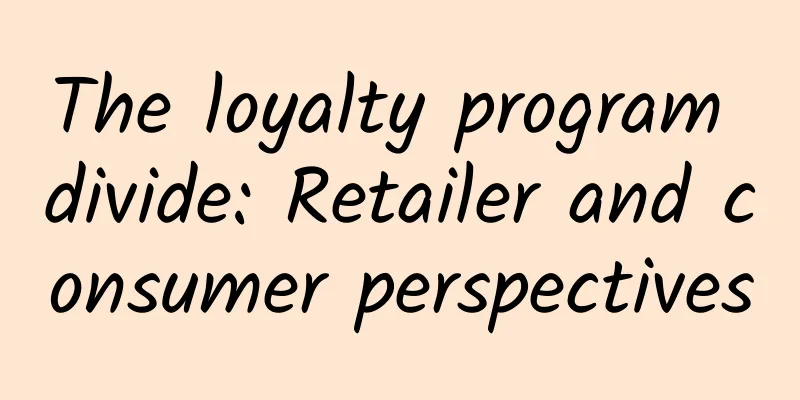The loyalty program divide: Retailer and consumer perspectives

|
A recent Oracle global study examining consumer perceptions, brand loyalty and influence in the hospitality industry found that many consumers are turning to influencers for inspirational recommendations when choosing where to travel and stay. The study collected input from 500 retailers, hotels and restaurants and 13,000 consumers in nine countries (Australia, Brazil, China, France, Germany, India, Mexico, the United Kingdom and the United States). The study shows that 43% of consumers said they are more likely to trust recommendations from YouTube influencers than brand ads or promotions; 37% of consumers believe that hotels that social influencers have stayed in and recommended are more trustworthy than hotels recommended by celebrities in advertising. As for hotel brands, 62% of hotel brands are not currently working with social influencers, and 71% of hotel brands do not have brand spokespersons. The study also found that consumers are selective when signing up for loyalty programs and consider whether they really fit their needs. In fact, 30% of people rarely join loyalty programs, 46% only join selected loyalty programs that are relevant to their needs, and only 24% join every loyalty program. More than half of the hotel professionals surveyed believe that loyalty rewards are in line with user needs, but only 22% of guests agree with this view, and another 39% believe that their offers do not fit their needs. Mike Webster, senior vice president and general manager of Oracle Hospitality, believes that as the industry continues to evolve from a transaction-based redemption model, the future of hotel loyalty may be about rewarding customers based on their behavior. While there is a clear divide between hotel brands and guests regarding loyalty programs, the hotel industry should remain optimistic because younger generations are the most engaged in loyalty programs and their loyalty is increasing. About a third of travelers aged 18-35 say they are more loyal to hotel brands than before. While 40% of baby boomers aged over 55 say they will only join select loyalty programs that are relevant to their needs, 29% of millennials intend to join every loyalty program. Social media and online review sites are having an increasing impact on guests’ choices as travelers are sharing unique and memorable experiences through these channels. Research shows that 57% of guests are likely to research hotel brands on social media before purchasing, 56% are likely to share photos of their hotel experiences on social media, 48% are likely to feature hotels on social media in exchange for rewards, and 46% are likely to link social media activity to a rewards program to automatically receive rewards. For hotel guests, personalization is fundamentally recognized by hotel staff and is associated with hotel amenities and experiences. Personalized offers based on preferences are appealing to 69% of travelers surveyed, and 65% said personalized offers based on purchase history are also appealing. Personalized service from hotel staff is appealing to 65% of travelers. When it comes to instant rewards vs. points in a loyalty program, 78% of guests prefer immediate benefits. Three-quarters say a loyalty program that works across multiple brands is appealing. Nearly three-quarters say a loyalty program that rewards frequently and doesn’t rely on points is appealing. High technology provides hotel guests with more connected and convenient services, and familiar tools can make their travel experience easier and faster. The vast majority (90%) of guests in this study want to be able to choose to accept or decline offers so that hotel loyalty programs can understand which products and offers are most attractive. An app that supports check-in, check-out and provides relevant and personalized information about the hotel is attractive to 88% of respondents. 87% of guests like to explore hotel rooms through virtual reality (VR) before deciding which hotel or room to choose. The report identifies four types of guests based on hotel loyalty programs: Broadcasters - These guests filter between brands and share their experiences, good or bad. One-third of these guests recommend their loyal hotels to others, and 38% discuss their hotel experiences online. Only 14% of these respondents aim to establish a high status on social media and review sites, and 38% post reviews on YouTube in exchange for discounts or rewards. Enthusiasts – These guests are followers of hotel brands. 38% of these consumers are most loyal to brands they rate highly. More than half say excellent service is most important, and 65% say quality amenities are most important. 19% follow their favorite brands on social media, but 41% say it’s important that they have access to new and interesting features at the hotels they are loyal to. Lazy Loyal – This type of guest is usually not interactive but tends to be loyal to the hotel. 63% of these guests believe that a desirable location is very important. One-third usually stick to brands they like instead of shopping around for other brands; one in six won’t even check reviews before staying at a hotel. 86% think it would be attractive if hotel staff could use mobile devices or tablets to serve guests anytime, anywhere. Seekers – These guests like to compare prices, look for the best value, and have little sense of belonging to a brand. 66% of them will choose a hotel because of competitive prices or promotions, and 59% will always compare other hotel products. Almost a third of them said they rarely join hotel loyalty programs, but 55% would exchange personal information in exchange for personalized offers or promotions. Chinese translation from: Travel Weekly The PDF version will be shared to the 199IT exchange group. 199IT thanks you for your support! |
<<: Worldpay: Chinese consumers expect a more comfortable mobile shopping experience
>>: E-commerce promotes inclusive development: New evidence from Asia’s least developed countries
Recommend
Does Panax notoginseng lower blood lipids?
Panax notoginseng is a relatively common medicine...
How scary are the bugs that burrow into your body?
Addendum 1: There are not only liver flukes, but ...
Why is it said that "a history of Henan is half of the history of China"? Because archaeological discoveries here are "Taizhong"!
In the Chinese civilization origin exploration pr...
Can hot water disinfect and sterilize bowls? Don't underestimate bacteria, try these methods to kill them →
Author: Xu Dong, Associate Professor, School of F...
Asian Winter Science Popularization Issue 2丨Speed skating VS short track speed skating, what is the difference?
Asian Winter Science Popularization Episode 2丨A D...
The new Omicron variant is more contagious and has increased immune escape. What is the ultimate antidote?
Since the emergence of the novel coronavirus Omic...
Can seasonal infusion prevent cerebrovascular disease? It's really unnecessary! There are risks...
gossip Every year when the seasons change, many e...
Family! Microwave ovens can really cook, and they are healthier than boiling water
Nowadays, various popular small household applian...
The efficacy and function of pig hair seven
In our lives, Glechoma longituba has attracted ou...
Middle-aged people die of melanoma. The "effect" of ultraviolet rays is beyond your imagination.
The benefits of ultraviolet light to people go fa...
Effects and functions of honeysuckle dew
Speaking of honeysuckle dew, many people know tha...
The efficacy and function of Shuangshenteng
Shuangshen Teng is a very good medicinal material...
The effect of Pangdahai
What exactly are the effects of the traditional C...
The efficacy and function of stone tendon grass
Stone tendon grass is a traditional Chinese medic...
What is the medicinal value of peony flowers?
Many people like peony flowers. This flower not o...









